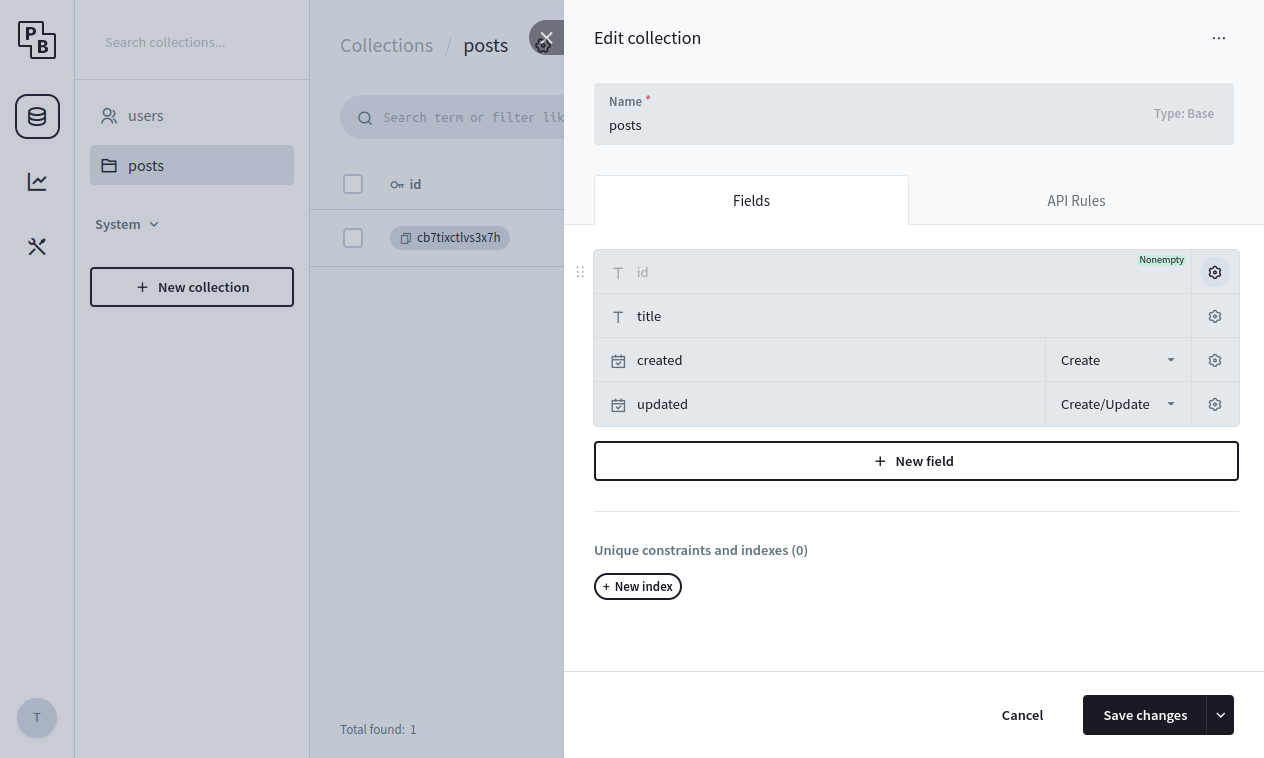PocketBase is a Go binary that gives you SQLite + auth + file storage + admin UI in one file. I've deployed this on 3 different client projects over the past year - a booking app, a small CRM, and some prototype that's still running in prod somehow.
Why It Exists
Traditional backends are a pain in the ass. You need PostgreSQL, Redis, an auth service, file storage, and probably 12 Docker containers just to store some user data. PocketBase throws all that complexity out the window - download one file, run it, done.
The latest stable version is v0.29.3 (released late 2024). It's still pre-1.0 software, so expect things to break between versions. Schema migrations bit me twice - once in March when they changed collection validation, again in August when they updated the auth system. Read the fucking changelog before upgrading.
What You Actually Get
SQLite That Doesn't Suck: Uses WAL mode so you can have multiple readers without blocking writes. Handles about 50-100 concurrent users before you hit the SQLite write bottleneck. If you need more, use PostgreSQL.
Auth That Works: Email/password, OAuth with Google/GitHub/etc. The OAuth setup is straightforward if you've done it before. First-timers will spend 2 hours reading Google's terrible OAuth docs.
File Uploads: Local storage works fine for prototypes. For production, you'll want S3 because local storage fills up fast. I learned this the hard way when a client's server ran out of space at like 2AM and their app died - users couldn't upload profile pics for 6 hours while I scrambled to configure S3.
Admin Dashboard: Actually decent, unlike most open source admin interfaces that look like they're from 2010. Real-time updates work well for monitoring your app.
Auto-Generated API: Creates REST endpoints for your collections. The filtering syntax takes some getting used to, but it's more flexible than most ORMs.
When to Use It
Perfect for:
- Side projects and prototypes
- Client work under 10k users
- Apps where you want full control over your data
- When you're tired of configuring Docker compose files
Don't use it for:
- Anything that needs to scale beyond SQLite's limits
- Mission-critical apps (it's still beta software)
- Complex analytics workloads
Self-Hosting Reality
Self-hosting seems free until you factor in monitoring, backups, security updates, and 3am outages. I run mine on a $10 DigitalOcean droplet with automated backups. Works fine, but you're the DBA now - which means when shit breaks at 2AM, you're the one fixing it while everyone else sleeps.
Oh also, set up monitoring from day one. I've had servers go down for hours because I forgot to check on them. Uptime Robot or similar will save your ass.








